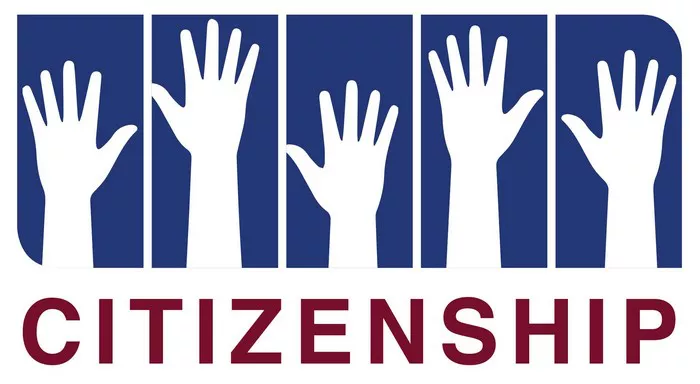Acquiring citizenship through marriage is a pathway that many individuals pursue to solidify their ties to a country and to ensure a stable future with their spouse. However, the process is often complex and varies significantly depending on the country in question. This article explores the intricacies involved in obtaining citizenship through marriage, focusing on the requirements, timelines, and potential obstacles one might face.
1. Initial Residency Requirements
The journey to citizenship typically begins with obtaining legal residency, often through a visa specifically designed for spouses. This visa might be known by different names in various countries, such as the K-1 (fiancé) or CR-1 (spouse) visa in the United States. The conditions and duration of the initial residency can vary widely:
United States: The U.S. offers a CR-1 visa, which provides conditional permanent residency for two years. After this period, the couple must file a joint petition to remove conditions and obtain a 10-year Green Card.
United Kingdom: The UK requires a Spouse Visa, initially granted for 30 months, with the possibility of extension. After five years of continuous residence, one can apply for indefinite leave to remain (ILR) and subsequently for citizenship.
Canada: Canada’s Spousal Sponsorship program grants permanent residency directly. After residing in Canada for three years within a five-year period, the permanent resident can apply for citizenship.
2. Residency Duration Before Citizenship Application
The mandatory period of residency before applying for citizenship varies by country and can be influenced by several factors, including the duration of the marriage and the location of residence:
United States: A spouse of a U.S. citizen can apply for naturalization after three years of continuous residency as a Green Card holder, provided they have lived in marital union with the citizen spouse during that period.
United Kingdom: In the UK, the spouse must have been living in the country for at least three years before applying for citizenship, provided they hold ILR.
Canada: Canadian law requires a permanent resident to have physically resided in the country for three out of the last five years before applying for citizenship, with no specific shortened period for spouses of citizens.
3. Documentation and Legal Procedures
Each country requires a detailed set of documents and adherence to legal procedures to verify the authenticity of the marriage and the eligibility of the applicant:
Proof of Marriage: A valid marriage certificate is universally required.
Joint Residency Evidence: Documents such as joint bank accounts, rental agreements, and utility bills help prove cohabitation.
Legal Status Proof: Visas, residency permits, or Green Cards demonstrating legal entry and stay in the country.
Additional documentation may include police clearance certificates, medical examinations, and, in some cases, language proficiency tests.
SEE ALSO: IS SINGAPORE CITIZENSHIP EASY TO GET? ALL YOU NEED TO KNOW
4. Background Checks and Interviews
To prevent fraudulent marriages for citizenship purposes, authorities conduct thorough background checks and interviews:
United States: USCIS may conduct interviews and request additional evidence to verify the legitimacy of the marriage.
United Kingdom: The Home Office may interview both spouses and require proof of continuous cohabitation.
Canada: Immigration, Refugees and Citizenship Canada (IRCC) conducts background checks and may call both spouses for interviews.
5. Naturalization Application and Processing Times
Once the residency requirement is fulfilled, the next step is to apply for naturalization. Processing times can vary significantly:
United States: The N-400 naturalization application can take between 8 to 14 months to process.
United Kingdom: The naturalization process usually takes around 6 months after applying.
Canada: Processing times for citizenship applications can range from 12 to 24 months.
6. Ceremonies and Oaths of Allegiance
The final step in becoming a citizen is participating in a citizenship ceremony, which involves taking an oath of allegiance:
United States: Applicants take the Oath of Allegiance in a formal ceremony.
United Kingdom: A citizenship ceremony is required where applicants take an oath or affirmation of allegiance.
Canada: New citizens must take the Oath of Citizenship in a public ceremony.
7. Special Considerations and Potential Obstacles
Several factors can affect the timeline and outcome of the citizenship application:
Conditional Permanent Residency: In the U.S., spouses initially receive conditional permanent residency, which requires the removal of conditions after two years.
Separation or Divorce: If the marital relationship ends before the residency or naturalization process is complete, the applicant may lose their eligibility.
Legal and Administrative Delays: Processing delays, errors in documentation, and legal issues can prolong the naturalization process.
Changing Immigration Policies: Immigration laws and policies can change, potentially affecting the timeline and requirements for citizenship.
Conclusion
The pathway to citizenship through marriage, while promising a clear route to permanent residency and eventual citizenship, is laden with various requirements and potential hurdles. Each country has its unique set of laws and procedures governing this process, reflecting its immigration policies and priorities.
Understanding the specific requirements, preparing necessary documentation meticulously, and being aware of potential delays are crucial for couples navigating this journey. While the exact timeline may vary, the commitment to the process ultimately paves the way for a secure and stable future for both spouses in their chosen country.


